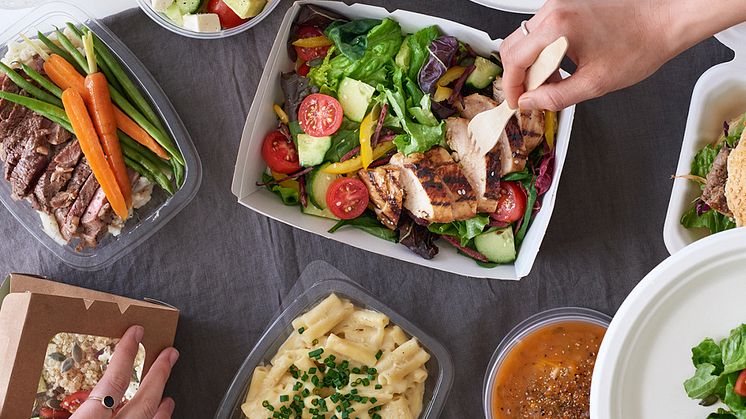
Blog post -
The Rise Of Veganism
The vegan lifestyle has grown in popularity over the past couple of years as more and more people embrace a plant-based diet, driven largely by shifts in culinary, social and agricultural attitudes, and a more educated and eco-conscious consumer.
Just over 7% of the UK population, or 3.5 million people currently label themselves as vegan, with 22 million additional people self-identifying as flexitarian. This means that in 2022, approximately 37.5% of the UK are receptive to the idea of reducing their meat consumption and opting instead for a vegan or vegetarian alternative.
According to the Guardian, a record-breaking 125,000 people took part in Veganuary during 2021, an increase of 100,000 on the previous year. This momentum seems likely to continue with an estimated 2 million people predicted to take part in 2022. Recent statistics support this growing trend. During the national lockdown, 22% of consumers took the opportunity to cut down on their meat consumption whilst Deliveroo saw a massive 187% increase in people ordering vegan food through their app.
It’s not just individuals that are turning to veganism. Major supermarket brands and other fast-casual businesses are now catering for the lifestyle, launching animal-free alternatives to popular products. For example, Domino’s recently announced its plan to bring vegan pepperoni to the UK in 2022, whilst Burger King launched a plant-based alternative for both the ‘Whopper’ and ‘Royale’ in their year-round menu.

But is it just a fad?
Nearly half of UK Millennials (born between 1981 and 1996) believe vegan restaurants will be in high demand in the next two years, with 47% attributing this to a renewed focus on reducing food waste and being more conscious of dining choices. Much like their Gen-Z counterparts, their desire to lead a more sustainable lifestyle is a contributing factor.
The concept of ‘flexitarian dining’ has been embraced by younger consumers with 79% of Gen Z (born between 1995 and 2015) going meatless once or twice a week, and 65% saying they want a more plant-oriented diet going forward. Younger generations believe you don’t need to be vegan to want to eat more vegan foods so, integrating vegan options at a restaurant is just seen as another expected choice on the menu rather than a statement. Instead of being led predominantly by their moral compass, their decision to go vegan is weighted by a desire for healthier choices and convenience.
Most standard recipes can easily be adapted to fit a vegan lifestyle as the diet includes staples such as bread, pasta, rice, fruit, and vegetables but, your costs understandably, are likely to increase. However, most consumers expect high-quality vegan convenience food to cost proportionally more than the standard set menu. This is largely because animal products tend to be heavily subsidised through economies of scale, and the current demand for vegan speciality products is lower in comparison to their non-vegan counterparts.
Taking the cost out of the equation, if you think about a typical evening dining out with friends or family, often the restaurant booked is the one that caters to the individual with the most restricted diet. If you do not offer any meat alternative options, you have already taken yourself out of consideration for a lot of these profitable parties.
With Gen Z expected to make up 40% of consumers within the next decade and vegan food fast becoming mainstream, food establishments need to quickly adapt their menus to ensure they are successfully satisfying their target clientele.

